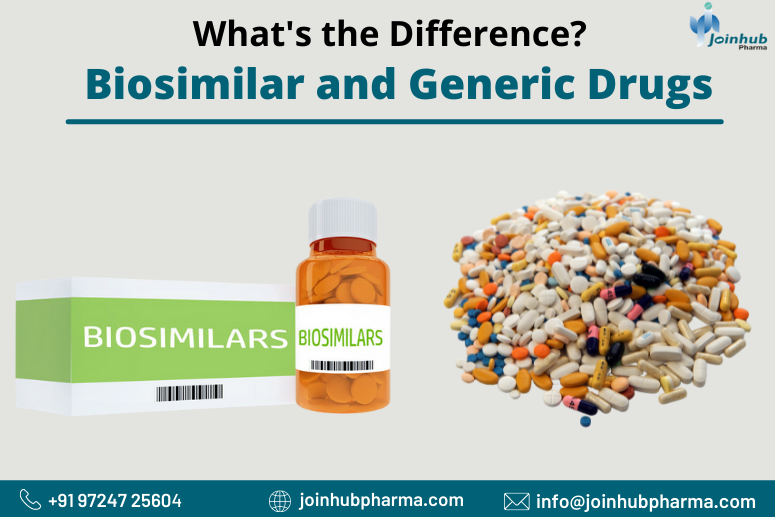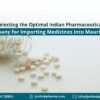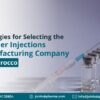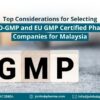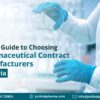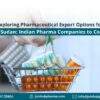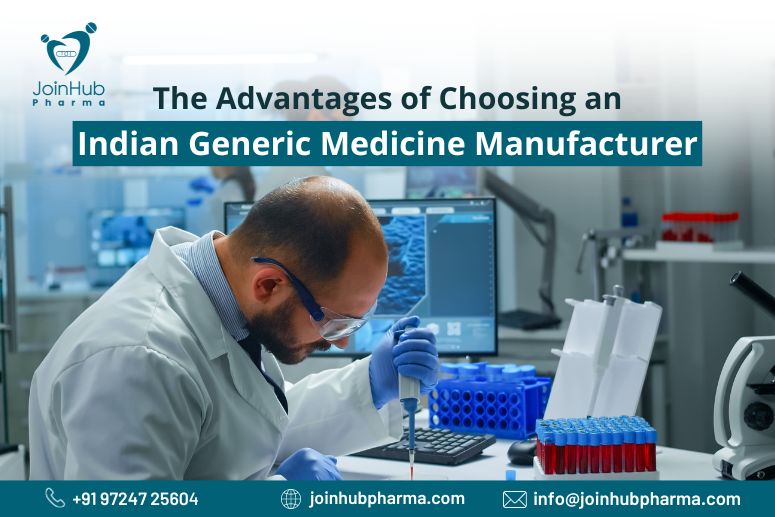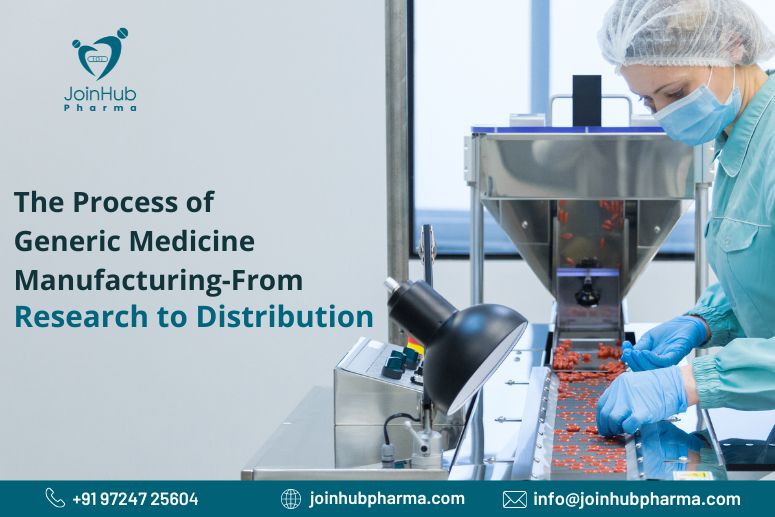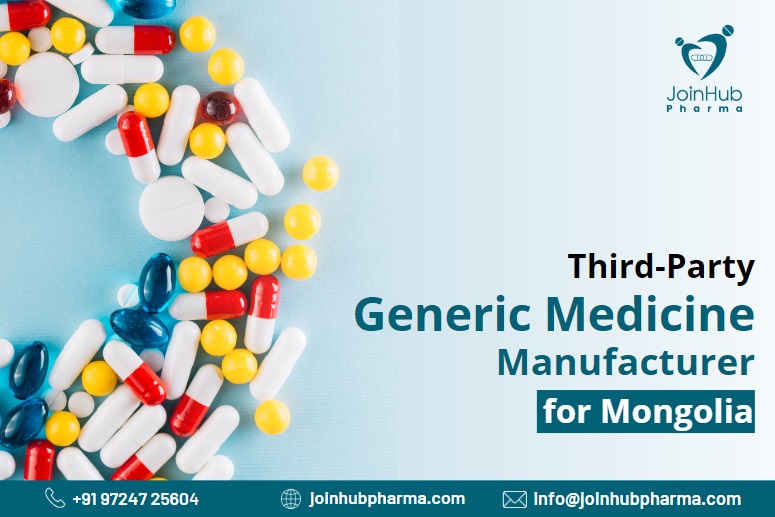The primary issue with biosimilar drugs is that numerous doctors and patients cannot distinguish them from generic drugs. They tend to believe that both are just copies of the original or reference drug.
In fact, the survey created by PwC in December 2015 states that around 67% of consumers were not sure what a biosimilar was, and about 16% gave an incorrect answer to the question about what a biosimilar was.
Although both generic drugs and biosimilars have the same commercial basis, meaning they are marketed when the original drug’s patent has expired, they are two completely different products regarding their structure, development, and authorization. In this article, we’ll discuss the main differences between biosimilars and generic drugs as per leading generic medicine suppliers.
What Are Generics?
A generic drug is a type of medicine that contains the same API and has an equivalent therapeutic effect as the branded drug. These drugs are additionally identical in terms of safety, dosage, strength, quality, route of administration, intended use, form, quality, effect, and side effects. These drugs can be manufactured just after the branded drug’s patent expiration.
Many reputed generic pharma companies in India use some simple chemical structures that can be manufactured quickly as compared to biosimilars.
What Are Biosimilar Drugs?
A biosimilar is a biologic medical product that is highly similar to already certified biological drugs. They get approval as per the pharma quality, safety, and effectiveness standards apply to all biological medicines.
Just like generics, biosimilars products can’t be manufactured until the patent of the drug expires. Due to the natural variability and complex processing of biological drugs don’t permit duplication of the molecular micro-heterogeneity. Thus, a biosimilar isn’t regarded as a generic of biological medicine.
Difference Between the Biosimilar and Generic Drugs
Although both generic and biosimilars medicines have similar revenue goals and are only permitted to market when the original drug’s patent has expired, they are entirely different products when it comes to their development, structure, and authorization.
Here are a couple of main differences between generic and biosimilars drugs.
- Biologic medicines are large and complicated molecules or compounds of molecules that may be formed of living material, while generic drugs are chemically synthesized.
- Unlike generic drugs, the FDA demands a biosimilar to be highly similar but not very identical to the current biologic medicine or the reference product.
- A biosimilar medicine should demonstrate no clinically meaningful differences in safety, efficacy, and potency with its reference product. It must be the same as the original biological medicine, while the generics are branded products.
- The generic drug’s cost usually reaches 40% to 50% less than the branded products and biosimilars. On the other hand, it is more like 15% to 20% cheaper due to the generic pharmaceutical manufacturer’s cost of testing.
- It is easy to create accurate generics copies of branded drugs, plus it requires no complicated modifications, making the drug manufacturing process smooth.
- Like generic drugs, biosimilars and other reference drugs aren’t synthesized through an easy chemical synthetic reaction. They require a complicated process in a cellular environment, such as any protein from the body.
- Almost all generic drugs require an investment of around 2-3 million dollars, but due to the complexity involved, biosimilars need an investment of around 3+ billion dollars.
- Generic drugs can reach your desired market in 2 to 3 years, but a biosimilar drug needs approximately between 7 and 8 years to reach the market. This extended timeline for biosimilars is due to the numerous studies necessary for their authorization, including safety and efficacy studies compared to reference branded drugs.
- Generic drugs must have bioequivalence studies in healthy volunteers but do not need preclinical studies. When it is marketed, they need the proper pharmacovigilance process.
- Unlike generics, biosimilars are evaluated and certified under the FDA evaluation process called 351(k) pathway 2.
Why Are Organizations Looking for Generic and Biosimilar Markets?
The increasing danger of chronic diseases such as diabetes & cardiovascular diseases, the large geriatric population, increasing healthcare expenses contribute to the growth of the generic drug market and an increased number of branded drug patent expires.
Being a leading generic pharma company in India, we, at JoinHub Pharma, think of the other key factors such as:
- Stringent governmental regulations and adverse effects linked with new drug development.
- The increasing demand for newer versions of generic drugs
- Many licensing and procedural strategies require to launch of new products by companies
- In contrast with branded drugs, the generic drug’s manufacturing costs much less since they don’t need animal studies and clinical trials to show the efficacy and safety of the drug.
- Due to the lowered upfront cost incurred in R&D, generics are usually marketed at a considerably lower price.
Investment and Cost of Development: Generic Vs. Biosimilar
Generally, generic drugs cost 40% to 50% less than the branded drug. On the other hand, Biosimilars are nearly 15% to 20% cheaper due to the generic pharmaceutical companies’ expense on testing.
Generic drugs need an investment of around 2-3 million dollars. However, biosimilars need a considerable investment of around 3 billion dollars due to the given complexity. Moreover, while a generic drug can touch the market within an approximate period of 2 to 3 years, a biosimilar drug requires between 7 and 8 years in order to be marketed. All this time required to develop biosimilars is due to the numerous studies necessary for their authorization, including pharmacokinetic studies.
JoinHub Pharma – The key Market Player
JoinHub Pharma is the biggest generic pharmaceutical company. The company is certified by the highest authority like WHO-GMP, EUGMP, FDA, MOH, etc. They are ranked in the top 10 generic pharmaceuticals companies in India and are known for high-quality pharma manufacturing products and services.
Get in touch with the experts at JoinHub Pharma today to know more about manufacturing generic and biosimilar drugs.

